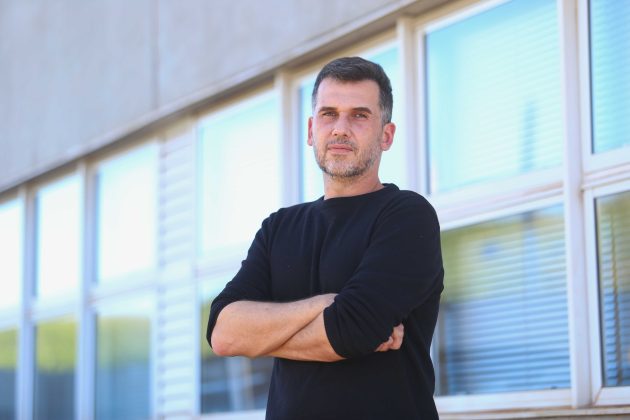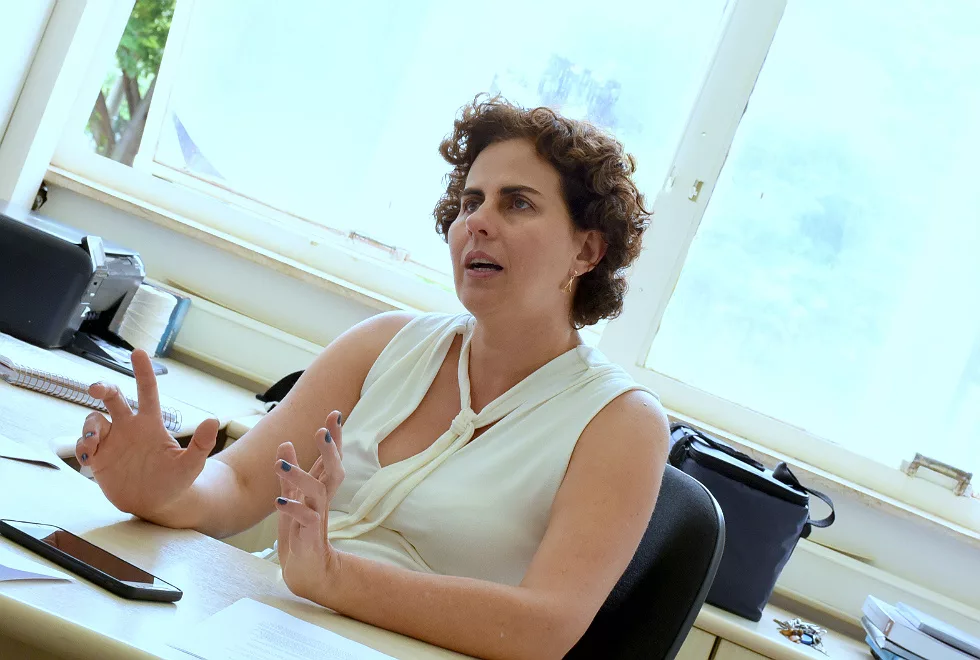 #Interviews
#Interviews
The other side of the brain drain
The emigration of highly skilled professionals may help create collaborative networks among researchers, states UNICAMP’s science policy expert
 A UNICAMP study indicates that more than 70% of professors with academic tenure abroad collaborate with at least one Brazilian researcher based in Brazil | Illustration: Shutterstock
A UNICAMP study indicates that more than 70% of professors with academic tenure abroad collaborate with at least one Brazilian researcher based in Brazil | Illustration: Shutterstock
Understanding the outflow of Brazilian researchers to other countries—the so-called scientific diaspora—was the goal of a questionnaire recently administered by the Center for Public Policy Studies (NEPP) at the University of Campinas (UNICAMP), which garnered 1,200 responses from Brazilian undergraduate students, postgraduate fellows, professors, and researchers working abroad.
The project was coordinated by social scientist Ana Maria Alves Carneiro da Silva, who has a PhD in Science Policy from UNICAMP. In an interview with Science Arena, she explains that the scientific diaspora should not be seen merely as the “brain drain.” According to her, there are also potentially advantageous factors for Brazilian science, through collaborative projects led primarily by researchers with established positions abroad.
As an example, she cites the contribution made by Brazilian professors and researchers who have obtained academic tenure outside of Brazil. In total, 62% maintain frequent contact with researchers who work in Brazil and 65% have coauthored publications with colleagues in Brazil.
In addition, the NEPP-UNICAMP survey shows that 63% of respondents collaborate in research groups with Brazilians, 60% occasionally participate in events/conferences, and 31% collaborate in science communication, dissemination, and outreach activities with researchers working in Brazil. It was also noted that 28% welcomed students or researchers from Brazil for research internships, 24% exchange good practices, and 7% work on codeveloping technologies.
Although there are positive factors, the NEPP researcher recognizes that it is extremely important to understand what makes scientists leave the country and what policies could create a more favorable scenario for them to stay or return to Brazil. The survey provides some possible answers.
Science Arena – The scientific diaspora is often seen negatively as the “brain drain.” Can we also discuss the positive effects?
Ana Maria Alves Carneiro da Silva – We see that the scientific diaspora helps establish networks. Our study shows that more than 70% of professors with academic tenure abroad collaborate with at least one Brazilian researcher based in Brazil. This percentage drops to around 60% among researchers with fixed-term contracts and postdoctoral fellows.
Among the doctoral students, who don’t yet have a network, only four out of ten collaborated with someone here in the country. In the context of international competition, these Brazilians abroad are usually well-positioned and have access to resources.
The more consolidated a researcher’s career is abroad, the more ties they have established with Brazil. This dismantles the belief that everyone should return to Brazil.
Another advantage is that they are familiar with Brazilian culture and that of where they are living.
Additionally, there are different types of collaboration, ranging from very specific projects, such as exchanging ideas and information, to codeveloping technologies involving matters of intellectual property. Another important point is that these researchers also establish partnerships with Brazilians who are based in another country, showing our potential to contribute to global science.
When did NEPP-UNICAMP begin studying the scientific diaspora and which methodology did you adopt to reach a sufficient sample of researchers abroad?
We began studying the Brazilian scientific diaspora in 2017, in response to a request from the Brazilian Embassy in Washington, USA. They had been developing some engagement activities with members of the diaspora in the United States and wanted to learn more about this process.
Then, we expanded the number of countries and, this year, we launched a questionnaire that was sent to an email list on the X platform (formerly Twitter) for Brazilian researchers who were known to be working abroad. We also checked other social media platforms and news reports, perused CVs on the Lattes platform, and scoured portals for scientific and governmental institutions.
The questionnaire was available from March 15th to July 18th. With the questions we asked in the survey, we sought to learn more about the Brazilian diaspora, including the respondents’ sociodemographic profiles, their motivations for leaving Brazil, and whether they had taken part in any international cooperation projects. We received 1,200 responses that met the inclusion criteria.

Would better characterizing this phenomenon facilitate the creation of better public policies to support training and retaining researchers in Brazil?
The first step is understanding the reasons behind the scientific diaspora, if collaborations are occurring, and how they can be improved. Additionally, we want to know if they have any intention of returning to Brazil and what the reasons would be for returning or staying abroad.
Among the postdoctoral fellows, around 30% intend to return within a period ranging from one to six years. Among the professors/researchers with academic tenure at foreign institutions, 90% have no plans to return.
The more established and supported the Brazilian researcher is abroad, the less they want to return to Brazil. In turn, as we have seen, they are interested in creating ties with their peers living in Brazil.
What are the country’s main bottlenecks currently making it difficult to retain skilled professionals in Brazil?
When we asked what their reasons were for leaving Brazil, the most common answers were, in order, receiving a job offer or postdoctoral fellowship abroad, seeking better funding for research and other academic activities, better access to research infrastructure, better pay, and better quality of life.
The areas of improvement for reducing bottlenecks would be increasing funding (larger amounts and longer timelines). We can’t establish a policy confined to short-term funding, without the stability that researchers find abroad. We also need to better value science and researchers (by regarding doctoral and postdoctoral research as work, providing higher pay, and establishing career plans) and increase both the value and quality of grants.
Furthermore, it is important to enhance internationalization (with bilateral and multilateral cooperation opportunities and agreements), increase incentives for publication, and bridge education gaps related to English fluency for students and researchers.
What is your opinion on how the Brazilian Ministry of Science, Technology, and Innovation (MCTI) is currently being managed in light of the scientific diaspora?
There have been joint efforts by the MCTI, the Ministry of Education, and the Coordination for the Improvement of Higher Education Personnel (CAPES), including an increase in grant funding for research projects.
There have been very auspicious and interesting developments. It feels as if science has returned and the recent dark cloud we’ve been living under is behind us. It was a time when science, funding, and scientists were under threat. Now, science is valued once again, and scientists are being looked upon with favor rather than suspicion. This is vital.
*
This article may be republished online under the CC-BY-NC-ND Creative Commons license.
The text must not be edited and the author(s) and source (Science Arena) must be credited.


